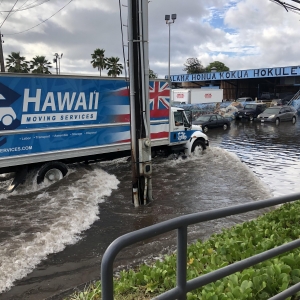The Stream, May 7, 2020: Governments in Southern Africa Target Water Shortages Amid Covid-19 Crisis
The Global Rundown
The Covid-19 pandemic pushes governments in southern Africa to become more proactive in maintaining adequate water supplies. The number of people displaced by recent flooding in Kenya reaches 100,000. A coalition of oil-producing states in the U.S. requests stimulus funding so that laid off energy workers can fill abandoned oil wells, which pose dangers to the environment. A lack of data leaves experts unsure of how quickly the coronavirus is spreading in slums and informal settlements worldwide. Two major water bills are set to go before the full U.S. Senate.
“It is my hope that both houses of Congress will take into account the heightened need and appreciation for access to clean water in protecting public health and the environment.” –Adam Krantz, CEO of the National Association of Clean Water Agencies, in reference to two major water bills that were crafted by the Senate’s environmental panel and will now go before the full Senate for consideration. Final changes to the Drinking Water Infrastructure Act of 2020 included a push for the EPA to develop national standards for PFAS chemicals. Slight tweaks were also made to the other bill, America’s Water Infrastructure Act of 2020. It is unclear when the bills will be reviewed by the full Senate due to the ongoing coronavirus pandemic. Bloomberg Law
Latest WaterNews from Circle of Blue
HotSpots H2O: Tracking Covid-19 Cases in the World’s Most Vulnerable Countries — The number of confirmed Covid-19 cases in countries identified as priorities in the humanitarian response to the coronavirus pandemic has surpassed 30,000, according to data collected by ReliefWeb, an online hub for international aid work.
What’s Up With Water – May 4, 2020 — This week’s edition of What’s Up With Water includes coverage on current conditions in Australia and low water levels on Germany’s Rhine and Argentina’s Iguazu River.
By The Numbers
30 to 60 percent Proportion of the world’s urban population that live in informal settlements, many of which lack running water or sanitation systems. Global health officials are attempting to track the spread of the coronavirus in these slums and settlements, but a lack of data is making it difficult to monitor the spread of the illness. Reuters
100,000 People displaced by floods and landslides in Kenya since mid-April, when rainfall began to intensify. Sicily Kariuki, the cabinet secretary for water and irrigation, warns that the adverse conditions could cause water shortages due to destroyed infrastructure and clogged pipelines. Al Jazeera
Science, Studies, and Reports
The Interstate Oil and Gas Compact Commission (IOGCC), a consortium of 31 U.S. states, has requested stimulus funding in order to employ laid off energy workers in plugging abandoned oil and gas wells across the country. Roughly 3 millions wells are deserted across the U.S., and about 2 million remain unplugged, which could lead to pollutants leaching into air and water. The IOGCC says that the stimulus funding would help keep energy workers working during the Covid-19 crisis and provide a service that many states cannot afford on their own. Reuters
On the Radar
Governments in southern Africa are becoming increasingly conscientious of water shortages in the face of Covid-19 and are now supplying water tankers, drilling boreholes, and repairing water infrastructure. Communities, many of which have experienced water shortages for years, and experts say that such response efforts must continue on after the coronavirus crisis subsides. Reuters
Kayla Ritter is a recent graduate of Michigan State University, where she studied International Relations and Teaching English to Speakers of Other Languages. She is currently based in Manton, Michigan. Kayla enjoys running, writing, and traveling. Contact Kayla Ritter






Leave a Reply
Want to join the discussion?Feel free to contribute!